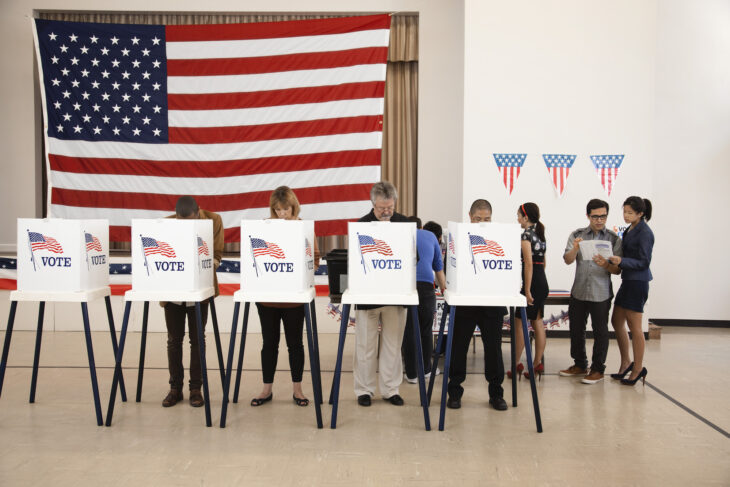
Unions serve a noble and beneficial purpose. This may irritate some readers who view unions as simply slush funds for those in power — a view which is not wholly incorrect — but it is a position I maintain. It is better for all workers when unions are strong and represent a wide cross-section of workers than having weak unions which represent select workers.
The former is obvious, if workers in setting X get a raise, it reverberates across the employment sector which inevitably results in wage increases. Unionized government workers got a ‘wage increase’ and the total effect was the increase in the minimum wage and increased pressure on businesses to implement wage increases.
The latter is also obvious if you stop and think about it. Unions which represent only the government employees, only the bauxite workers and only the teachers leave workers in silos and allows for the exploitation of workers on the low end of the scale.
The issue of workers being unable to join or form unions plagues this country and feeds into the overall low union rate we have.
Call centre workers in this country, for example, are unable to unionize or even broach the topic without being fired and this has resulted in many fly by night companies popping up and abusing the worker.
This is a major issue and represents yet another stain on the consciences of the two major political parties which were born out of the labour movement. The issue of the inability of call centre workers to unionise has reached comical levels as the health ministry seeks to have a call centre handle medical calls.
This, if it is a local company, will see the government having reams of non-unionized contract workers working for it, but really at the beck and call of the companies. This, if we recall, is something the government is supposedly against if we are to believe it and its statements when security guards transitioned from contract workers to employees (it should be noted that all the major unions are courting security guards as potential representatives and that an association seeking to represent them exists).
The inability of these workers to unionize and the impact it has is massive. The BPO sector is the fastest-growing sector and is one of the largest employers in the country. It brings in much-needed foreign exchange and provides jobs for those who do not have the grades or funds to further their education.
As one of the largest employers coupled with no union representation, we hear tales of people not being paid on time, being shifted from one account to another with little to no forewarning, termination of employment at the employer’s behest and the list goes on.
I am by no means saying all call centres operate that way, but enough do for it to be labelled an issue that is not being addressed and cannot be addressed by those in charge.
Trade unions have a lot to answer for; the mass desertion of unions by the workers is partly their fault, but it has also been maintained by those in power who see how they can benefit from this.
As the country continues to stabilise on a macroeconomic level, the workers must not be left to wonder when they will benefit and if they will have a job if they raise issues.
Too many workers from the hotel sector to the BPO sector are living perilous lives as they operate in zones opposed to unionization. It cannot be that things like health care, vacation, and maternity leave are left to the whim of a company which will take them away if they face economic headwinds.
This precarity is leeching into other sectors of empowerment where workers are viewed as contractors, not employees, and it will, if left unchecked, leech into areas which were once seen as sacrosanct.
The whole point of unions is to organise the workers so they can not only get a better deal at negotiations, but to actually represent them and their interests. The vast majority of workers do not have this representation and its effects are being felt by teachers, nurses and police officers who are, in many instances, being treated as contractors.
Unions must take the bold step and challenge the BPOs in court. They, and they alone, have enough clout and financial muscle to see that done. They must understand (and they do based on their own words) how dangerous it is to have a large segment unrepresented and unable to form representation and what it means for other sectors.
This can only be changed by education; educating the public on what unions are for, and on the rights of workers which currently are at risk of further erosion if not destruction.
Yes, they represent different segments of workers, each with their own peculiar interest but that can be overcome if they go into the communities and engage the people, their neighbours, mothers, fathers, brothers and sisters on the benefits of unions and the important role they play and why workers’ rights must be protected and enhanced.
The Jamaican worker cannot afford to lose rights and it is a stain on the country that we have allowed a section of workers to become unrepresented. We need representation in the factories, on the fields, on construction sites and so on as that is the only way our rights will be defended.
Organizations which have a legacy and the cache that goes with it must start to act as incubators for unions in other fields. They can advise and show potential pitfalls but more than anything they will provide cover for workers in those industries whose employment is always on a knife edge. Either unions unite and do what they are supposed to or we can watch the slow withering away of hard-won rights.



